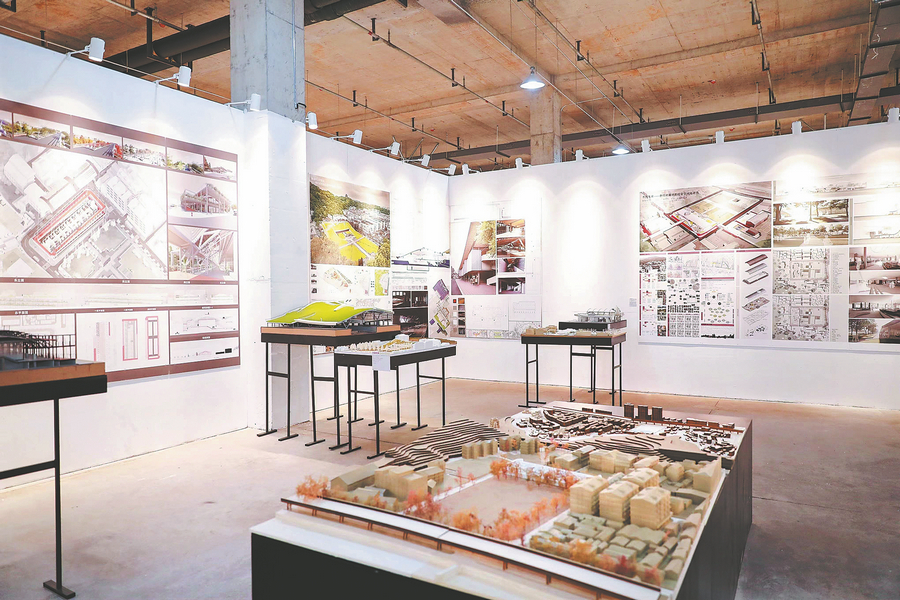Brain Garden exhibition shows roots of creativity


First step
The China Academy of Art started to hold a graduation season open to all Hangzhou residents in 2010 and rebranded it as the Zhijiang International Youth Art Festival in 2019.
Gao explains that the most important reason to host off-campus exhibitions is to expose students' works to society, allowing them to be reviewed by the public in formal exhibition venues, and engage in professional presentations and peer interactions.
"The graduation exhibition is the final step in talent development at the school and serves as the first step for students to enter society and embark on their professional careers," he says.
He Chenghao, 23, a graduate of this year at the School of Design and Innovation, is going to study for the Master in Design Studies, focusing on mediums domain, at Harvard University this fall.
For his graduation work, He and his classmates Zhan Shuoyu and Ma Songtao created a programmable protein intelligence system called Bio-Turing, collaborating with a research group led by principal investigator Chen Zibo, an assistant professor from Westlake University.
By designing programmable and modular proteins capable of interacting with each other, they achieved the collaboration of multiple proteins to perform complex functions. "It can be understood as a protein-driven biological computer," He explains.
He says, in contrast to purely artistic disciplines, he places great importance on external feedback and the stimulating thoughts it generates, and additionally, he possesses a keen interest in emerging technologies and groundbreaking concepts.
























